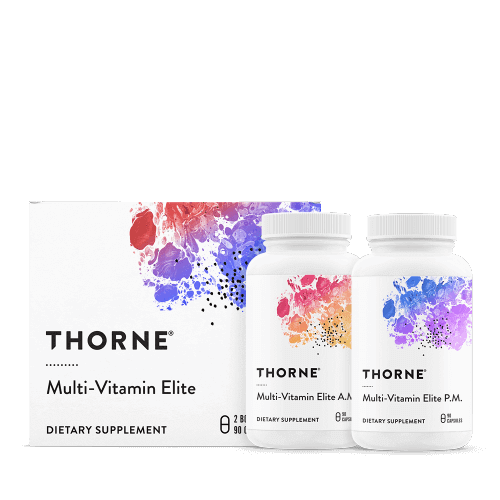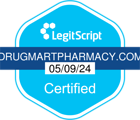We're in this together.
Fight COVID-19
Drug Mart staff is here to help you and your family through COVID-19. Get the latest information, learn how to protect yourself and our commitment to you.

You'll see that we've made a lot of changes.

We're dedicated to your safety.
Disinfectant hand sanitizer and wipes available as you enter.
Floor markers to remind you to maintain a safe 6 feet distance.
Masks required to enter. Employees wear masks.
Floor markers to remind you to maintain a safe 6 feet distance.
Masks required to enter. Employees wear masks.
A safer place to shop
We're making our store safer for customers and team members.

Extra cleaning
We're thoroughly cleaning each night, in addition to periodic daytime cleanings.

Health measures
For everyone's safety, team members are wearing face coverings, and we request you to do the same.

Social distancing
We've added plexiglass shields at checkout and indicators to keep everyone six feet apart.

Curbside pickup
We have designated parking spots for curbside pickup.

Free delivery
Prescriptions delivered to your home or office. Give us a call!

Free shipping
We ship prescriptions for free anywhere in New Jersey, New York or Pennsylvania.

What is COVID-19?
The newly identified coronavirus disease (COVID-19) is caused by a virus called SARS-CoV 2. First identified in China in December 2019, COVID-19 has infected more than six million people around the world. While this coronavirus is new, it is not the only coronavirus. Coronaviruses were first identified in the 1960s, commonly infect people and are associated with the common cold.

What are the symptoms of COVID-19?
People with COVID-19 have reported a wide range of symptoms, ranging from mild to severe, that may appear 2–14 days after exposure to the virus:
• Cough
• Shortness of breath or difficulty breathing
• FeverChills/repeated shaking with chills
• Muscle pain
• Headache
• Sore throat
• New loss of taste or smell
This is not an exhaustive list. Please consult your healthcare provider for other symptoms that are severe or concerning to you.
• Cough
• Shortness of breath or difficulty breathing
• FeverChills/repeated shaking with chills
• Muscle pain
• Headache
• Sore throat
• New loss of taste or smell
This is not an exhaustive list. Please consult your healthcare provider for other symptoms that are severe or concerning to you.

How do I prevent infection?
• Wash your hands often. Wash your hands well, especially after coughing, sneezing or having any contact with someone who's coughing or sneezing. Use soap and running water, scrub your hands for at least 20 seconds and then rinse and dry your hands thoroughly. When soap and water aren't available, use an alcohol-based hand sanitizer containing at least 60% alcohol.
• Keep your hands away from your face. Avoid rubbing your eyes or putting your hands to your mouth until you've washed your hands.
• Observe respiratory etiquette. Cover your mouth and nose when coughing or sneezing, throw away used tissues immediately and wash your hands afterwards.
• Clean high-touch surfaces. Frequently disinfect surfaces like door handles, light switches and countertops.
• Keep your distance. Avoid close contact with others when outside of your home.
• Keep your hands away from your face. Avoid rubbing your eyes or putting your hands to your mouth until you've washed your hands.
• Observe respiratory etiquette. Cover your mouth and nose when coughing or sneezing, throw away used tissues immediately and wash your hands afterwards.
• Clean high-touch surfaces. Frequently disinfect surfaces like door handles, light switches and countertops.
• Keep your distance. Avoid close contact with others when outside of your home.

What do I do if I feel sick?
If you begin to feel ill, even with mild symptoms, manage them as you would if you had the flu. Stay at home, in a separate room from your family if possible, and avoid public places until you recover. Rest, use fever reducers (if needed) and keep at least six feet away from other people when possible. If you develop a cough and/or have difficulty breathing, call your healthcare provider to discuss your symptoms and travel history, and you'll be advised how to best proceed.

Who is at higher risk for getting COVID-19?
According to the CDC, older adults and people with serious chronic medical conditions, such as heart or lung disease or diabetes, seem to be at higher risk for developing more serious complications from COVID-19. Your healthcare provider can recommend additional steps you may be able to take to protect yourself.

Should people with HIV take extra precautions?
There is not yet specific information about the risk of serious illness from COVID-19 in people with HIV. Until more is known, the U.S. Department of Health and Human Services recommends that those with HIV, especially people with advanced or poorly controlled HIV, take additional caution. This includes keeping influenza and pneumococcal vaccinations up to date, maintaining an adequate supply of antiretroviral therapy (ART) and following all CDC recommendations, including social distancing and regular handwashing.

Do younger, healthy people need to take precautions?
Yes. While most young, healthy people are at lower risk of becoming critically ill, it's still important for those individuals to take precautions to prevent the spread.

What do I do if I've tested positive for COVID-19?
In the U.S., COVID-19 can only be confirmed with a laboratory test. Outside of the U.S., sometimes COVID-19 is diagnosed based on symptoms only. If you've been diagnosed with COVID-19, you should follow your healthcare provider's instructions very closely, avoid public places and wear a mask if you have to be around other people. Those caring directly for you should wear masks when they are with you as well. You will need to practice self-isolation.

What is self-isolation?
If you are told to self-isolate or self-quarantine, you must stay in your home, preferably in a room away from the rest of your household members, wear a mask if you go out to the doctor's office and avoid visitors. Anyone coming into your room should also wear a mask. You should continue to follow everyday illness prevention practices, include washing your hands often, covering coughs and sneezes and disinfecting your home environment.

What is social distancing?
Social distancing is intentionally increasing the physical space between people (at least six feet), as well as minimizing social contact, to avoid spreading illness. Examples include avoiding crowds, working from home instead of going into the office and visiting with loved ones via electronic device instead of in person.

Why is social distancing recommended?
In general, the larger the gathering, the more opportunities there are for person-to-person contact and therefore greater risk of spreading COVID-19 virus. A COVID-19 outbreak could last a long time in your community. Depending on the severity of the outbreak, public health officials may recommend specific actions, such as closing schools and public locations, in order to help keep people healthy, reduce exposures to COVID-19 and slow the spread of the disease. These mitigation strategies are particularly important in order to slow the transmission of disease in order to protect:
• Individuals at increased risk of severe illness, including older adults and persons of any age with underlying health conditions.
• Healthcare and critical infrastructure workforces.
• Individuals at increased risk of severe illness, including older adults and persons of any age with underlying health conditions.
• Healthcare and critical infrastructure workforces.

Do I need to cover my face in public?
Yes. According to the latest guidelines from the CDC, everyone should wear a cloth face covering when going out in public—for example, to the grocery store or to pick up other necessities. Cloth face coverings over your mouth and nose are meant to protect other people in case you are infected but do not have symptoms. A cloth face covering is not a substitute for social distancing. Continue to keep about six feet between yourself and others.














